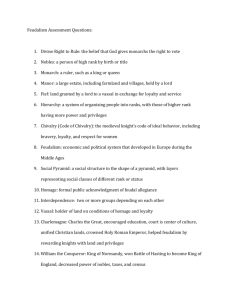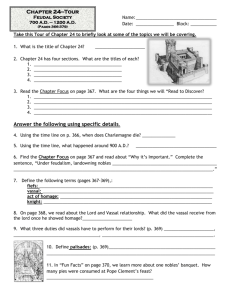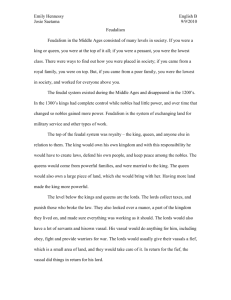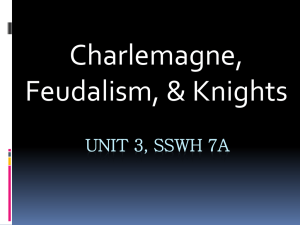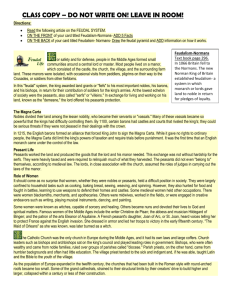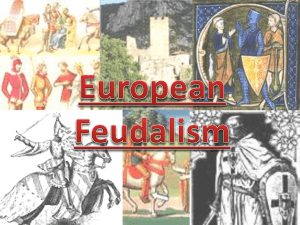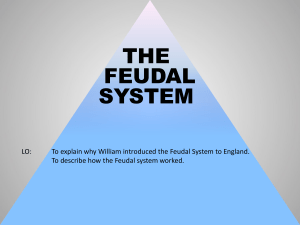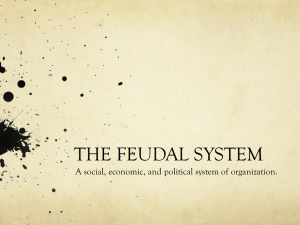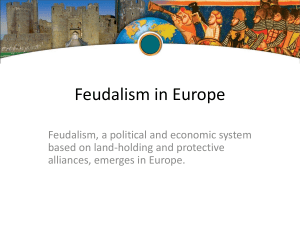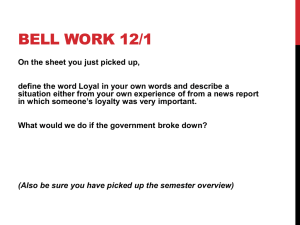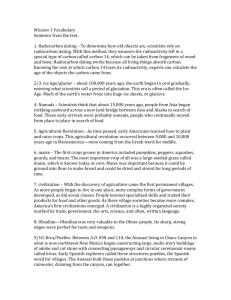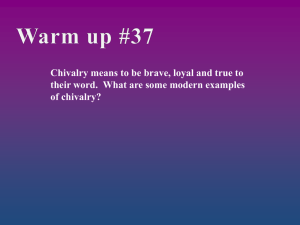Feudalism 7.6.3, 7.6.1 Feudalism`s development in Europe, life of
advertisement
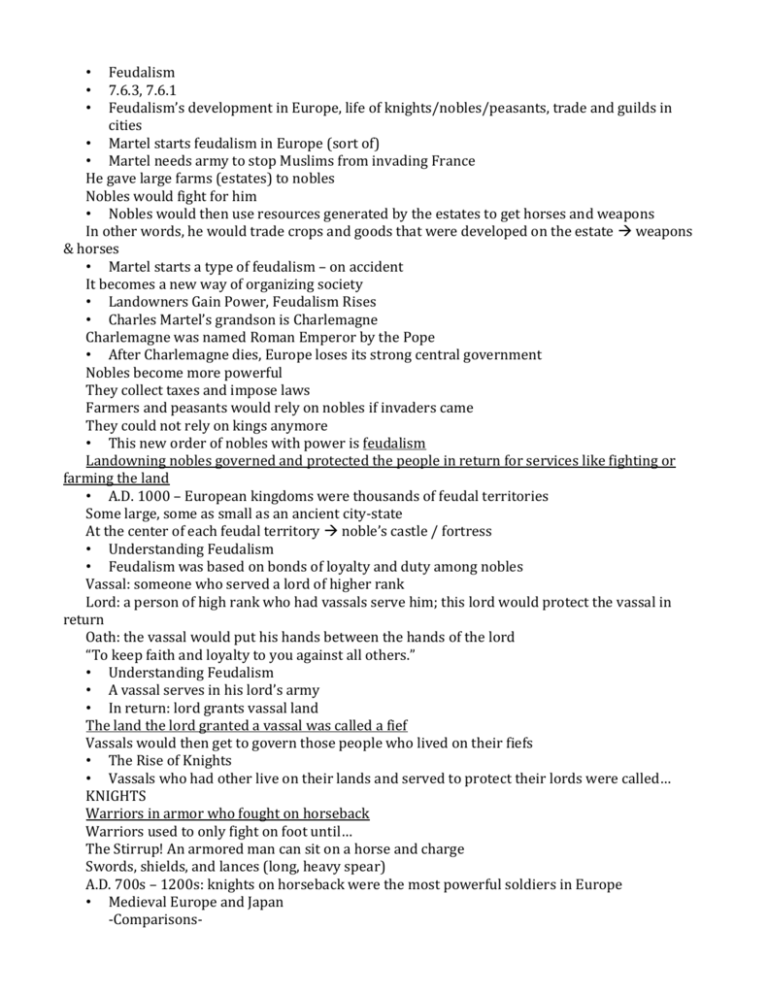
Feudalism 7.6.3, 7.6.1 Feudalism’s development in Europe, life of knights/nobles/peasants, trade and guilds in cities • Martel starts feudalism in Europe (sort of) • Martel needs army to stop Muslims from invading France He gave large farms (estates) to nobles Nobles would fight for him • Nobles would then use resources generated by the estates to get horses and weapons In other words, he would trade crops and goods that were developed on the estate weapons & horses • Martel starts a type of feudalism – on accident It becomes a new way of organizing society • Landowners Gain Power, Feudalism Rises • Charles Martel’s grandson is Charlemagne Charlemagne was named Roman Emperor by the Pope • After Charlemagne dies, Europe loses its strong central government Nobles become more powerful They collect taxes and impose laws Farmers and peasants would rely on nobles if invaders came They could not rely on kings anymore • This new order of nobles with power is feudalism Landowning nobles governed and protected the people in return for services like fighting or farming the land • A.D. 1000 – European kingdoms were thousands of feudal territories Some large, some as small as an ancient city-state At the center of each feudal territory noble’s castle / fortress • Understanding Feudalism • Feudalism was based on bonds of loyalty and duty among nobles Vassal: someone who served a lord of higher rank Lord: a person of high rank who had vassals serve him; this lord would protect the vassal in return Oath: the vassal would put his hands between the hands of the lord “To keep faith and loyalty to you against all others.” • Understanding Feudalism • A vassal serves in his lord’s army • In return: lord grants vassal land The land the lord granted a vassal was called a fief Vassals would then get to govern those people who lived on their fiefs • The Rise of Knights • Vassals who had other live on their lands and served to protect their lords were called… KNIGHTS Warriors in armor who fought on horseback Warriors used to only fight on foot until… The Stirrup! An armored man can sit on a horse and charge Swords, shields, and lances (long, heavy spear) A.D. 700s – 1200s: knights on horseback were the most powerful soldiers in Europe • Medieval Europe and Japan -Comparisons• • • • Europe AND Japan had feudal societies • Japan Powerful nobles loose loyalty to Japanese Emperors Nobles relied on samurai (like the European nobles relied on knights) Samurai owed loyalty to their lords/nobles (called the daimyo) Samurai fought for daimyo like… Knights fought for lords • BOTH knights and samurai wore armor and fought on horseback • Feudal System Illustrated • The Manorial System (part of feudal system) • Manors: the lands on the fiefs (land granted to vassals) during the Middle Ages Lords ruled the manor Peasants worked the land Some peasants were freemen who paid to farm the land These free peasants had rights and could leave if they wanted • The unpleasant (yet often bearable) life of a serf • Most peasants were serfs Could not leave manor Could not own property Could not marry without lord’s approval • Serfs were NOT slaves, though Lords could not take their lands Lords had a duty to protect their serfs Serfs needed safety to grow their crops
